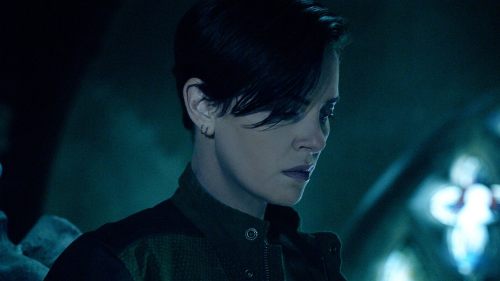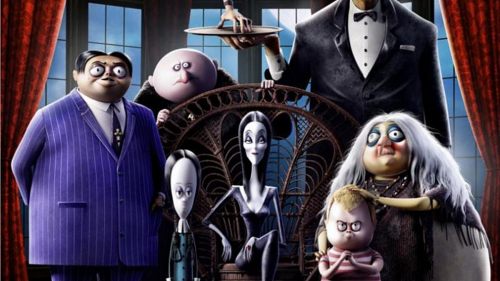Our Daily Trailer: YOUNG ADULT
I am concluding Oscar snub month with my favorite film of 2011, and a film that was wholly snubbed by the Academy. Young Adult is not only Jason Reitman's best film, but it might be Diablo Cody's finest, most precise work as a writer so far, and Charlize Theron's most exceptional role since Monster.
I've written before about that feeling you chase at the movies - that moment when something connects with you on such a deep and almost invasively personal level that a chill radiates from your spine and you feel the vague tingle of anxiety in your gut because you know, in that moment, that this film isn't just speaking to you. It was made for you. That's Young Adult for me. You or I may not see ourselves directly in the actions of the exceedingly, willfully regressive Mavis Gary, but she holds a beautifully and scarily reflective quality. She is not sympathetic but, like many of the best characters in fiction, challenges us to be empathetic and recognize the darkest parts of ourselves - those parts that we can't even force ourselves to look at or own up to, those parts we subtly embrace without directly glaring in their face when no one else is looking.
"Willfully regressive" is my favorite descriptor for a fictional female character, and Mavis is the definition of that. Unlike the endearing and overused man-children we see so often, a willfully regressive female confronts us in layers. Not only is she more complex, but she's a fucking challenge to the audience, forcing us to reflect on stereotypes, like the "strong female character" and what the hell that even means or needs to mean. Mavis is a strong female character because she's so flawed and unrepentant, and because her portrayal is so brutally honest. She's a strong female character because we can - if we allow ourselves and emerge from our own denial - relate to her, and there is nothing stronger or more beautiful than honesty, no matter how much it's unpleasant or painful or damning.
There were nine Best Picture nominees in 2012, including Oscar-bait like The Help and The Artist (which won, wonder of all wonders), a solid and charming Woody Allen film (Midnight in Paris), Alexander Payne's very good The Descendants, Martin Scorsese's also good-but-not-great Hugo, Moneyball, The Tree of Life, and the ridiculous Extremely Loud and Incredibly Close. The Scorsese and Allen films represent good work from the directors, but nowhere near the level of their previous efforts, and thus the nominations feel almost perfunctory.
Young Adult arrived nowhere on that list, nor did it earn a nomination for Best Original Screenplay or Best Actress for Theron, or Best Supporting Actor for Patton Oswalt, whose portrayal of Matt Freehauf is almost as heart-wrenchingly painful as Theron's own of Mavis Gary. Oswalt's performance, like Theron's, has a reflective quality, though he serves mostly as a mirror to the flaws of Mavis - they are so similarly emotionally crippled.
But there's something also off-putting about Young Adult, and although I would call it challenging before I'd label it off-putting, so many people find themselves unable or unwilling to connect with it. The film doesn't have a winning and aspirational female protagonist, and Mavis is so unpleasant at first (or even second) glance that many refuse to embrace her or allow themselves to identify with or understand her. In general, audiences don't particularly like flawed women, although they often take perverse joy in championing the flawed and morally questionable male protagonist. Breaking Bad gave us the greatest example of this hypocritical mindset, as so many people took pleasure in and rooted for the despicable antics of Walter White while simultaneously condemning his actions, and yet they encouraged the behavior because without that complexity and those deep character flaws, there would be no show. Even still, most viewers hated his wife, Skylar, who disapproved of her husband's bullshit and voiced that displeasure regularly. Skylar herself was a flawed female lead, but viewers refused to relate or accept her because women should know their place, even in fiction.
Young Adult has helped change the way we perceive flawed women, along with fellow 2011 releases like Bridesmaids and Melancholia, which also featured incredibly regressive and faulty women.
Would an Academy Award or three help further encourage our perception of these kinds of characters? I'm not sure, but at least Cate Blanchett won the Best Actress Oscar for her similarly damaged and self-damaging character in Blue Jasmine. I'll take what I can get.



